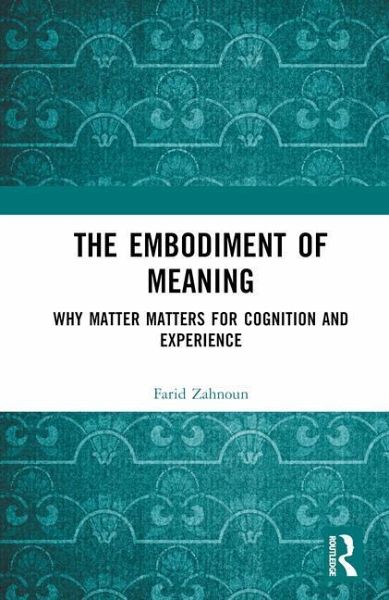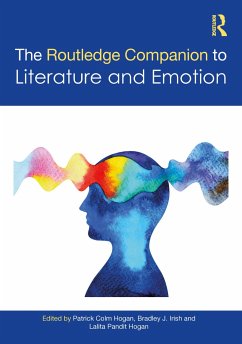
The Embodiment of Meaning
Why Matter Matters for Cognition and Experience
Versandkostenfrei!
Versandfertig in 6-10 Tagen
154,99 €
inkl. MwSt.
Weitere Ausgaben:

PAYBACK Punkte
77 °P sammeln!
This book presents an elaborated argument for why functionalism, as well as other dematerialized and disembodied theories of mind, can't be right.In discussing the question of whether or not we are just material beings, Hilary Putnam once claimed that "we could be made of Swiss cheese and it wouldn't matter." Fifty years later, functionalism still reigns, and the psychological irrelevance of the materiality of our bodies remains a hardwired assumption of philosophy of mind and cognitive science. As this book shows, the idea of the possibility of a disembodied mind is rooted in a philosophical ...
This book presents an elaborated argument for why functionalism, as well as other dematerialized and disembodied theories of mind, can't be right.
In discussing the question of whether or not we are just material beings, Hilary Putnam once claimed that "we could be made of Swiss cheese and it wouldn't matter." Fifty years later, functionalism still reigns, and the psychological irrelevance of the materiality of our bodies remains a hardwired assumption of philosophy of mind and cognitive science. As this book shows, the idea of the possibility of a disembodied mind is rooted in a philosophical depreciation of the particular in favor of the abstract, an attitude which runs through Western philosophy as a red thread. The Embodiment of Meaning demonstrates how this privileging of the immaterial-abstract over the material-particular is not only untenable from a logical-philosophical point of view; it also runs counter to a basic fact of human psychology itself: rather than being irrelevant, the world precisely matters most in its material particularity. In addition to offering a thoroughgoing criticism of the Platonic-functionalist "abstract-over-particular" idea, the book aims to substantially contribute to a less ambiguous understanding of the various ways in which "matter matters."
In discussing the question of whether or not we are just material beings, Hilary Putnam once claimed that "we could be made of Swiss cheese and it wouldn't matter." Fifty years later, functionalism still reigns, and the psychological irrelevance of the materiality of our bodies remains a hardwired assumption of philosophy of mind and cognitive science. As this book shows, the idea of the possibility of a disembodied mind is rooted in a philosophical depreciation of the particular in favor of the abstract, an attitude which runs through Western philosophy as a red thread. The Embodiment of Meaning demonstrates how this privileging of the immaterial-abstract over the material-particular is not only untenable from a logical-philosophical point of view; it also runs counter to a basic fact of human psychology itself: rather than being irrelevant, the world precisely matters most in its material particularity. In addition to offering a thoroughgoing criticism of the Platonic-functionalist "abstract-over-particular" idea, the book aims to substantially contribute to a less ambiguous understanding of the various ways in which "matter matters."













